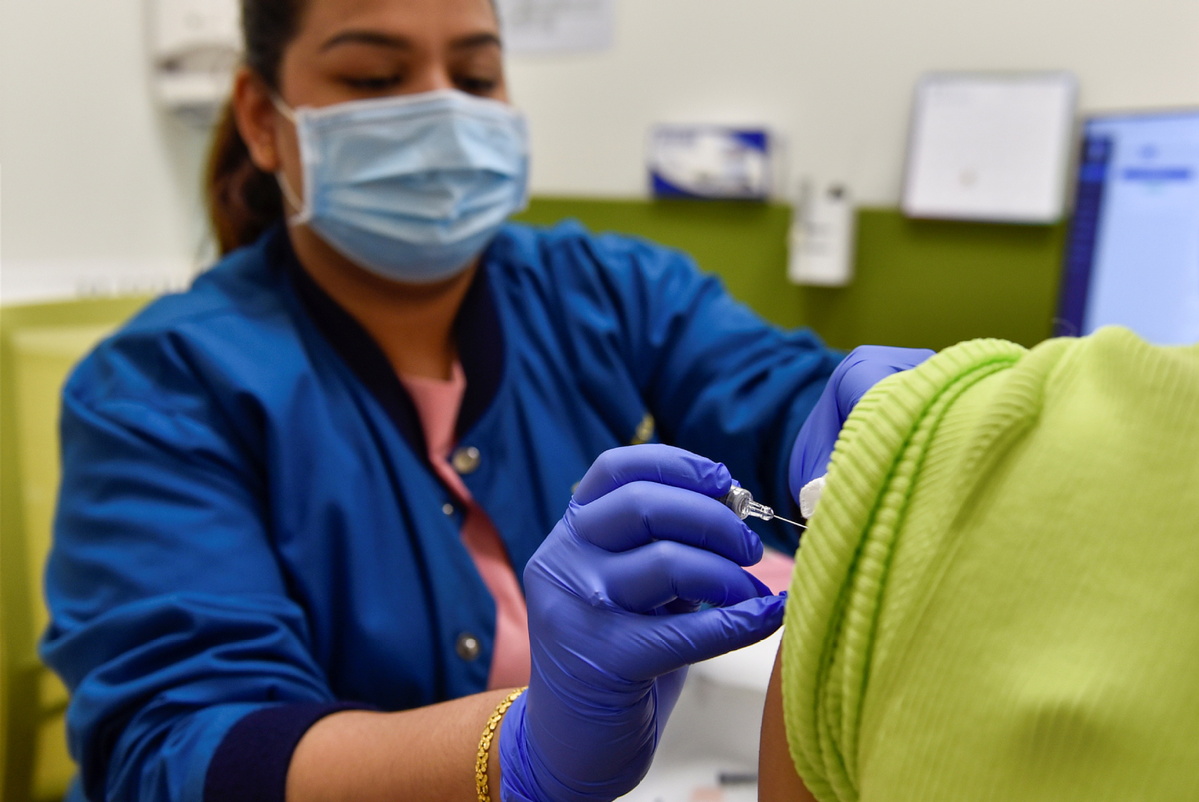Jabs milestone boosts Singapore outlook


Widely praised for its handling of the pandemic, Singapore is once again a role model for the world-achieving COVID-19 resilience with a high vaccination rate.
The city-state is now the world's most vaccinated nation, with 80 percent of its roughly 5 million population fully vaccinated due to its government's efficiency, people's wide support and financial capability. Despite the presence of the highly infectious Delta variant, COVID-19 cases in the country remain relatively under control.
Jeremy Lim, director of global health at the Saw Swee Hock School of Public Health at the National University of Singapore, said the repeated and consistent messaging by political leaders and healthcare professionals has been crucial to Singapore's success with vaccinations. Lim said authorities have also been "rapid and decisive "in addressing any misinformation on vaccines.
Prime Minister Lee Hsien Loong kicked off Singapore's vaccination campaign by getting vaccinated in January. He then encouraged Singaporeans to get inoculated, saying that "it's painless, it's effective and it's important".
In March, the Ministry of Communications and Information launched a full-pledged campaign to inform more people about vaccinations.
The campaign was delivered in various forms from face-to-face community outreach programs to social media platforms, so that it can reach out to as many people as possible.
Authorities have also opened more community health centers and trained more healthcare workers to carry out the vaccinations, making vaccines more accessible.
Paul Anantharajah Tambyah, president of the Asia Pacific Society of Clinical Microbiology and Infection, said Singapore's wealth also accounted for its vaccination success.
"Singapore is a high income country with the financial resources to pay high prices for vaccines," he said.
High national income
A major finance and trade center, Singapore is one of the world's wealthiest countries with a per capita national income of $60,000.
Tambyah said Singapore is also a city-state, making it easy to distribute vaccines all over the country. This is in contrast to other countries with massive land areas and high rural populations.
In his National Day Rally speech on Sunday, Lee said that with COVID-19 under control, it is time for Singapore to focus on generating new growth, new jobs, and prosperity for the future. And that future involves reopening the borders to preserve Singapore's status as a business hub.
Singapore is gradually opening its borders by allowing the entry of vaccinated travelers from Germany and Brunei starting Sept 8.These travelers will no longer be quarantined, but will instead be required to get polymerase chain reaction tests and go on a short period of self-isolation.
Authorities have eased movement restrictions as more people get vaccinated. Employers can now bring more workers back to the office, and more people can attend events and enter public facilities like libraries and museums, as long as they are fully vaccinated.
Sanjay Mathur, chief economist for Southeast Asia and India at ANZ Bank, said Singapore managed to gradually reopen its economy because of its high vaccination rate and its capability to control spread of the virus within its borders. He is confident that Singapore will maintain its status as a strong business hub and has forecast GDP growth this year at 6.1 percent.

































